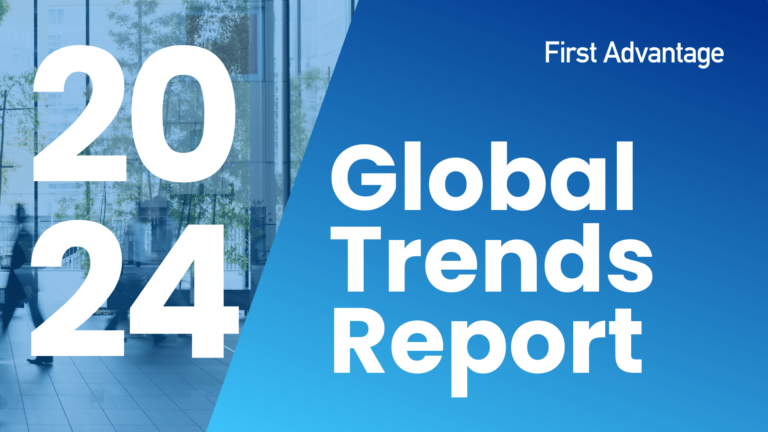In less than two months, 2020 changed the way people work, likely forever. Pushing forward in the face of massive disruption, many companies continued hiring while others hit pause, eager to get back to work. During this time, it became clear what these companies needed to make work a reality under these new circumstances and what they need going forward, particularly as it relates to background screening. Here are three emerging trends:
Increase in remote work over the long-term.
What began out of necessity has given many employers the push to implement long-term remote work strategies over the long-term—even indefinitely. Google and Facebook will allow the majority of employees to work remotely through the end of 2020, while Twitter recently announced that their employees will be able to work from home going forward. As more and more companies support remote workforces, employers face new considerations concerning what background screening looks like for employees outside the office. How are these employees set up to work outside of the office? Are their network connections secure? These are just some of the questions employers should be asking.
At the same time, recent numbers reflect surges in marijuana sales. Cannabis e-commerce platform Jane Technologies reported in March that the average store revenue is up 52 percent compared with sales in January 2020 and that new online buyers have increased 142 percent. If drug testing is part of the screening process, employers may want to re-screen employees returning to the worksite or leverage a “virtual,” oral test to screen employees who remain remote.
Increase in contingent labor.
Employers are looking to build their workforces quickly and decrease costs—and this often means the use of contract, temporary or gig labor. A recent Gartner survey revealed that 32 percent of organizations are replacing full time employees with contingent workers as a cost-saving measure. No surprise that contingent workforce platforms for grocery shopping and meal delivery have seen a huge spike in usage recently, with Instacart hiring upwards of 250,000 shoppers in April, bringing its freelance workforce up to 500,000.
While contingent labor may not legally be considered “employees,” they carry the same liability from a screening perspective. Companies looking to hire contingent labor should screen these candidates as they would full-time employees in the same role. That will also make it easier to transition contingent workers to employees without having to re-screen as the employment relationship evolves.
Increase in data collection.
According to Gartner, 16 percent of organizations are passively gathering employee data through time tracking, computer usage monitoring and employee communications monitoring related to internal emails and chat. With an increase in remote work, this trend will likely grow and expand in scope to include data related to COVID-19.
Further, criminal record monitoring, which alerts employers to reportable criminal record activity for existing employees, emerged as an industry offering within the past few years and continues to gain traction with companies. Given that so many working will be offsite this is another potential addition to existing screening packages.
Over the past several weeks, First Advantage has helped assist companies in hiring more than one million essential workers despite the circumstances. The companies poised to come out of this global health crisis ahead are the ones that can pivot to meet the needs of these changing times without increasing the risk to themselves or their employees. Right now is an ideal time to review background screening programs to ensure resilience and success on the road ahead.

About the Author
As Chief Experience Officer at First Advantage, Joelle Smith focuses on the confluence of technology innovation and data science to help clients manage human capital risk. Expert in digital transformation, she has been recognized for her strong track record of helping global businesses grow through agile development. During the course of her career, she has been instrumental in creating opportunities for others, particularly through her participation in mentoring and coaching programs.
